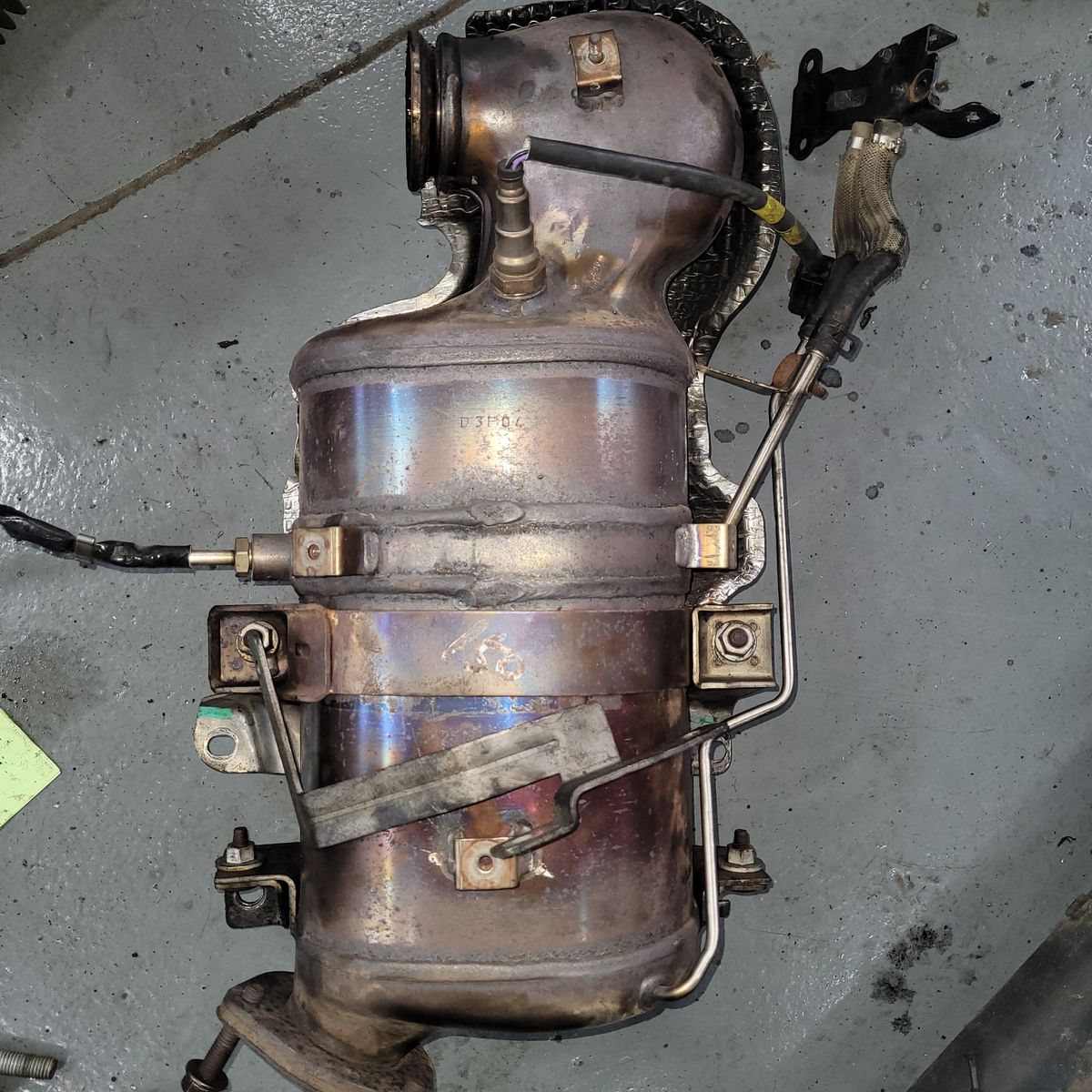About the catalytic converter:
Located between the exhaust manifold and the tailpipe, the catalytic converter is an exhaust component that helps to reduce your car’s emissions. As exhaust emissions flow through your exhaust system, the catalytic converter reduces and oxidises these fumes. This results in a significant reduction in emissions.
Catalytic converters are a requirement in virtually all modern petrol engine cars but as of March 2019, are not yet required to be functioning correctly for a Warrant of Fitness.
Learn more about emissions requirements in New Zealand
When should the catalytic converter be replaced?
With correct care, a catalytic converter can easily last for over ten years of use. In some cases, the catalytic converter will even last the life of the vehicle. However, the catalytic converter can be prone to failing prematurely. When the part fails, it will need to be replaced in order to restore proper exhaust function.
Catalytic converter damage can be caused by incorrect engine running (particularly engine misfires) clogging, physical damage to the exhaust system or contamination by engine oil or coolant. You can extend the life of your catalytic converter by avoiding damage to the undercarriage of your car and fixing engine leaks and misfires before they get out of hand. New catalytic converters can be relatively expensive to replace.
Symptoms of a damaged catalytic converter:
Below are some of the most common symptoms of a failing catalytic converter. If you notice one or more of these symptoms, get your car examined to determine if the catalytic converter is the problem:
- Check engine of exhaust light – Inside your exhaust system, the oxygen sensor detects levels of oxygen in the emissions. If the catalytic converter fails, these levels will be affected. This usually results in a check engine light or exhaust symbol light appearing on your dashboard.
- Decreased engine performance – A faulty catalytic converter can directly affect the circulation of air in the engine. Any inconsistencies in air/fuel ratio can reduce engine performance. This can cause reduced acceleration, misfires, increased fuel consumption and other issues.
- Engine struggling to stay running – If the chemicals inside the catalytic converter break apart, they can cause an internal blockage. This can lead to increased back pressure in the exhaust system causing the engine to not start, or struggle to stay running.
- Increased emissions – When the catalytic converter breaks, it will not be able to properly clean emissions. This can lead to increased emissions from your exhaust pipe, meaning more harmful green house gases will enter earths atmosphere.
Catalytic Converter Replacement in Hamilton
Is your car in need of a new catalytic converter? If so, we can help! At Grimmer Motors, our team of skilled mechanics can quickly determine whether your catalytic converter isn’t working properly. From there, we can replace the faulty converter for you. This will allow for improved engine and exhaust performance, as well as a massive decrease in emissions.
For catalytic converter repairs and replacement in Hamilton, contact Grimmer Motors today!
Please Note – we don’t generally stock or supply just “parts only” for this service. We are a general automotive repair workshop. If you are able to bring your vehicle to us, we can diagnose the problem, find and fit the necessary parts, or organise the appropriate service for you.


